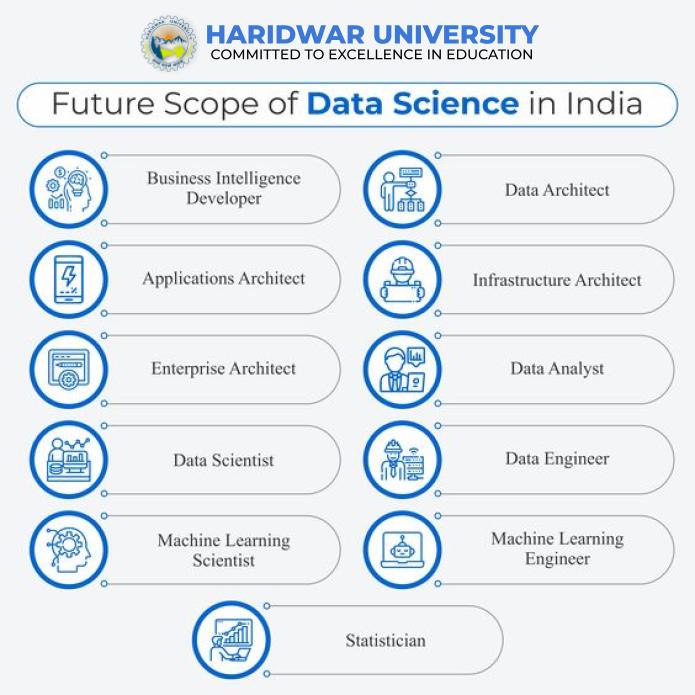In today’s rapidly evolving technological landscape, generative AI and data science stand at the forefront of innovation. These fields are revolutionizing industries by providing advanced solutions for complex problems, creating new opportunities for businesses, and driving significant economic growth. As we look towards the future, the demand for skilled professionals in generative AI and data science is set to soar, presenting exciting career prospects for those equipped with the right expertise.

What is Generative AI?
Generative AI refers to algorithms and models that can generate new content, including text, images, music, and more, by learning from existing data. Unlike traditional AI, which focuses on analyzing and interpreting data, generative AI creates new data that resembles the input it was trained on. This technology has numerous applications, from creating realistic images and videos to developing sophisticated natural language processing (NLP) systems.

The Role of Data Science
Data science is the discipline of extracting insights and knowledge from data through various techniques, including statistical analysis, machine learning, and data mining. Data scientists use these insights to inform decision-making, optimize processes, and develop predictive models that drive business strategies. With the exponential growth of data, the role of data science has become crucial in harnessing the power of information for competitive advantage.

Emerging Career Opportunities
As generative AI and data science continue to mature, several career paths are emerging for professionals in these fields:
AI Research Scientist
- Responsibilities: Conduct cutting-edge research in AI, develop new algorithms and models, and contribute to academic publications.
- Skills Required: Advanced knowledge of machine learning, deep learning, mathematics, and programming languages like Python and TensorFlow.
Data Scientist
- Responsibilities: Analyze large datasets, build predictive models, and provide actionable insights to support business decisions.
- Skills Required: Proficiency in statistical analysis, machine learning, data visualization, and programming languages like R and Python.
Machine Learning Engineer
- Responsibilities: Design, develop, and deploy machine learning models and systems.
- Skills Required: Strong programming skills, knowledge of machine learning algorithms, experience with ML frameworks like TensorFlow and PyTorch.
AI Product Manager
- Responsibilities: Oversee the development and deployment of AI products, manage cross-functional teams, and ensure the product meets user needs.
- Skills Required: Understanding of AI and machine learning, product management experience, and excellent communication skills.
Data Engineer
- Responsibilities: Build and maintain data pipelines, ensure data quality, and support data analytics and machine learning initiatives.
- Skills Required: Expertise in data warehousing, ETL processes, and programming languages like SQL and Python.
Industries Embracing Generative AI and Data Science
Numerous industries are leveraging generative AI and data science to drive innovation and efficiency:
- Healthcare: Developing AI-driven diagnostic tools, personalized treatment plans, and predictive analytics for patient care.
- Finance: Enhancing fraud detection, algorithmic trading, and risk management through advanced data analysis and AI models.
- Entertainment: Creating realistic animations, special effects, and personalized content recommendations using generative AI.
- Retail: Optimizing supply chain management, improving customer experience, and personalizing marketing strategies with data insights.
- Manufacturing: Implementing predictive maintenance, quality control, and process optimization through data-driven approaches.
Preparing for a Career in Generative AI and Data Science
To thrive in these dynamic fields, aspiring professionals should focus on the following:
- Education: Pursue degrees in computer science, data science, AI, or related fields. Specialized courses and certifications can also provide valuable knowledge and skills.
- Practical Experience: Gain hands-on experience through internships, projects, and research opportunities. Working with real-world data and AI models is crucial for developing practical expertise.
- Continuous Learning: Stay updated with the latest advancements in AI and data science by participating in workshops, conferences, and online courses.
- Networking: Connect with industry professionals, join relevant communities, and seek mentorship to build a robust professional network.
Conclusion
The future of careers in generative AI and data science is bright and full of possibilities. As these technologies continue to evolve, they will unlock new opportunities across various industries, transforming how we live and work. By acquiring the necessary skills and staying abreast of the latest trends, aspiring professionals can position themselves at the forefront of this exciting technological revolution.





